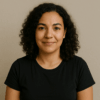Could a single month abroad change your career path or the way you speak to the world?
Explore tailored programs that let students study in 40+ destinations with flexible start dates and durations. EF and CIEE offer structured schedules, organized activities, and real-life practice that blend lessons, free time, and community engagement.

Options range from campus residences to vetted host families and one-to-one homestays where a private teacher hosts you on full board. Many providers guarantee measurable progress—typically an advance in one level every six weeks—so your time abroad yields clear results.
The page ahead helps you compare programs, destinations, and accommodation to match goals and calendars. Whether you want learn a new language for school, study abroad, or career growth, this guide will map practical steps, timelines, and who benefits most—from teens to adults and learners 50+.
Overview of Our Language Immersion Exchange Courses
A smart mix of classes, cultural outings, and free hours helps students turn practice into fluency. EF’s core schedule pairs 15–20 hours of formal instruction with planned cultural activities and time to explore. CIEE adds homestays, internships, and local engagement so classroom lessons become everyday use.
Teacher-home options provide one-to-one tuition with full-board accommodation. That format accelerates progress and gives constant feedback from a host instructor.
Programs combine lessons, sports, city tours, and workshops to reinforce learning through action. Daily study is balanced with independent time so students absorb new words and concepts naturally.

- Trackable progress: regular lessons, teacher feedback, and activity-led practice.
- Flexible start dates and durations to match school calendars and personal goals.
- Experienced staff manage placement, safety, and daily activities for continuity.
- Global classmates create a world-spanning peer network and lasting friends.
Choose a destination that fits your comfort level and goals to build language skills fast while making memories that extend beyond the classroom.
Why Choose Immersion for Fast, Real-World Fluency
Everyday life abroad turns routine moments into powerful practice that speeds up speaking and comprehension.

Learn by living: meals, shopping, transit, and small talk become short practice sessions. These tiny interactions build listening and speaking intuition far beyond textbook drills.
Learn by living the language every day
Using speech in real situations lowers hesitation and improves pronunciation. EF’s model shows that pairing daily use with structured feedback creates steady gains.
“Daily exposure and guided practice convert study into usable skill.”
Structured classes plus activities for measurable progress
Class lessons introduce grammar and vocabulary. Then projects, city interactions, and cultural workshops reinforce that input immediately.
One-to-one teacher homestays personalize lessons to your goals, such as exam prep or industry terms. CIEE emphasizes slang and cultural integration to make speech feel natural.
Visible progress—test-level advances, certifications, and portfolio-ready projects—boosts motivation and drives daily study. Consistent feedback loops and planned activities turn experience into lasting proficiency.
How Our Immersion Programs Work
We match your starting level to lessons and activities so progress is fast and clear.
Placement by level with guaranteed advancement pace
Every student begins with a placement test to set the right class. This avoids downtime and keeps momentum steady.
“Advance approximately one level every six weeks when following the scheduled path.”
Daily schedule: lessons, cultural activities, and free time
Typical schedules include 15–20 hours of classes plus curated activities each week. Mornings focus on structured lessons and targeted skills.
Afternoons and evenings offer guided cultural activities and time to practice in real settings. Optional clubs and excursions add extra practice tied to your interests.
Accommodation options: campus-style, host family, or teacher’s home
Choices range from residence halls to vetted host families and private teacher homes with full board. Each option changes how much daily practice you get.
| Option | Comfort | Practice Level |
|---|---|---|
| Campus residence | Private rooms, shared facilities | Moderate conversation with peers |
| Vetted host family | Home meals, local routines | High daily conversational practice |
| Teacher’s home | Full board, focused tutoring | Intensive guided practice |
Local staff oversee safety and supervision in every location around the world. Programs are flexible by weeks to fit school breaks or longer stays.
Who Our Programs Are Designed For
Whether you’re a high school student or a mid-career professional, we design paths that fit your timeline and goals. Our offerings cover ages, schedules, and learning objectives so every learner gets guided progress.
Teens and high school students seeking supervised travel
Age groups like 13–16 and 16–18 get supervised stays with vetted host family placement and staff oversight. Safety, age-appropriate activities, and clear school approvals are built in.
College students and gap-year learners
Options for 18–25-year-olds align with academic calendars and credit goals. Internships and semester tracks fit gap-year plans and longer stays measured in weeks or years.
Adults and professionals targeting career goals
Professional tracks focus on business and industry vocabulary, workplace scenarios, and targeted exam prep. These paths speed practical communication for your career.
50+ learners seeking tailored pace and interests
Programs for 50+ learners emphasize cultural activities, comfortable pacing, and small groups. Personalized tracks match starting levels and personal interests.
| Segment | Typical Ages | Durations |
|---|---|---|
| Teens | 13–18 | 2–12 weeks |
| College / Gap-year | 18–25 | 4–52 weeks / years |
| Professionals & 50+ | 25+ / 50+ | 2–52 weeks |
Levels are matched at placement, optional add-ons include exam prep and sector modules. Families and sponsors receive progress updates so everyone stays informed while learners build real-world skills.
Top Destinations and Languages
Picking the right city can turn study time into real-world speaking and cultural insight.
Flagship pairs spotlight where you’ll get the most practice: English in the USA and the UK; Spanish in Spain and Costa Rica; French in France; German in Germany; Italian in Italy; Japanese in Japan; Chinese in China and Taiwan; and Korean in Korea.
Each destination’s city rhythm and local culture shape daily practice and slang. Small towns, major metros, coastal climates, and historic centers offer different chances to try new words in markets, transit, and cafés.
Excursions and curated activities—museum visits, food workshops, and local festivals—reinforce classroom work by putting vocabulary into context.
Durations range from a few weeks to full years, depending on visa rules and academic needs. Students can compare programs by city size, climate, and activity mix to find the best fit.
Many providers let you combine locations or extend stays to sample accents across the world. Housing choices—host family versus campus—also change how much daily practice you get.
- Internships, volunteering, and university-style study are available in select cities for applied learning.
- Cultural workshops in cooking, music, and festivals turn grammar into usable speech.
Weigh your study goals against lifestyle preferences and planned activities to choose the ideal destination and get the most from your experience.
Program Formats to Fit Your Goals
Time on the ground matters: short trips build confidence, while extended stays deliver deeper skill gains and career value.
Short stays (1–4 weeks) are ideal for testing a destination and refreshing language skills with minimal time away. These week-long options focus on daily lessons, guided activities, and lots of practical practice. They boost speaking confidence and help you decide if a longer term fits your plans.
Intensive terms: 2–24 weeks
Intensive programs hit the sweet spot for measurable level jumps. With frequent lessons and organized activities, students often see clear progress within weeks. EF’s model supports steady gains, and CIEE or teacher-home formats can tailor pace and electives for exam prep or professional communication modules.
Semester or year abroad
Longer stays—semesters or full years—bring deep cultural integration and near-native fluency. More time means richer networking, internships, and portfolio-ready projects that translate into career benefits. University-style terms also allow for credits and capstone work.
- Weeks invested + lesson intensity = expected outcomes: more weeks and daily practice accelerate level gains.
- Flexible start dates fit school calendars, PTO windows, and career transitions.
- Formats differ by pacing, electives, and capstones; you can combine short and intensive options as goals evolve.
Pick a world destination that matches your aim—quiet study hubs for focused revision or big cities for broader professional networks. The right mix of time, lessons, and activities determines how fast you reach the next level.
Language Immersion Exchange Courses
Pick the setup that matches your learning style—group energy, one-to-one focus, or academic rigor. Each format shapes daily routines, from morning lessons to evening activities. Choose a path that fits your goals and tempo.
Campus-based immersion with international classmates
EF runs 50 accredited campuses with diverse cohorts and elective tracks. Students follow a set schedule of classes and campus life, with student services handling housing, meals, and health support.
Group projects and clubs boost speaking practice and peer feedback. Campus life blends formal lessons with social events that reinforce classroom learning.
One-to-one homestay with a private teacher
Teacher-home stays deliver full-board accommodation and personalized lessons. A dedicated host provides constant conversational practice and tailored feedback.
This model suits learners who want fast gains, focused review, and comfort in a family setting. Mealtimes double as practice sessions with an experienced family or teacher.
University-style study abroad with local engagement
CIEE and partner universities offer seminars, labs, and community projects. Academic credits and local internships add structure and professional relevance.
Students join local classes and events, which deepens cultural awareness and applied skills.
| Format | Daily dynamics | Best for |
|---|---|---|
| Campus | Structured schedule, peer groups | Social learners |
| Teacher homestay | One-to-one lessons, full board | Intensive practice |
| University | Seminars, projects, community | Academic goals |
Choose by target outcome: pick a course or language program that matches prior study and career aims. Consider accommodation, commuting, and the level of cultural engagement you want.
Learning Beyond the Classroom
Out-of-class experiences make vocabulary stick by tying words to places and people. These activities turn study time into active practice and help learners use new skills in real life.
City tours, cultural workshops, and excursions
Guided city tours connect vocabulary to landmarks, transit stops, and market phrases. Students learn to ask for directions, buy tickets, and read signs while moving through real spaces.
Cultural workshops — cooking, music, and arts — give hands-on chances to internalize idioms and etiquette. EF runs many of these classes while curated excursions extend practice to regional sites for added context and confidence.
Sports, clubs, and volunteer opportunities
Joining sports teams or clubs creates natural conversation moments and fast friendships. Casual play and team routines lower anxiety and make speaking feel normal.
CIEE encourages volunteer projects as service learning that builds civic awareness and practical speaking skills. These experiences deepen cultural understanding and offer varied accents and colloquial use.
Real-life practice with host families and local communities
Living with a host family or teacher turns daily life into ongoing practice. Mealtimes, errands, and small chores become lessons in listening, pronunciation, and everyday phrasing.
Activity leaders prompt reflection and link experiences to targeted grammar and pronunciation. Choose programs with activity calendars that match your interests to keep motivation high and make gains durable.
“Practical experience in town and at home makes classroom learning spontaneous and long-lasting.”
Results You Can Measure
Trackable outcomes turn study time abroad into measurable career assets. Committed learners can expect steady, visible gains when lessons, feedback, and daily practice align.
Advance approximately one level every six weeks
EF guarantees about one level of progress every six weeks for motivated students following the schedule. This benchmark helps plan semesters or short-term blocks and sets clear expectations for progress across weeks.
Build credits, certifications, and a global network
Options exist to align study with university credit or recognized certificates. CIEE’s 130+ programs support internships and community projects that produce portfolio artifacts employers value.
Boost confidence, career prospects, and cultural competency
Consistent lessons, teacher feedback, and activity-led practice develop language skills and related cognitive skills such as problem-solving and memory.
“Regular assessment and portfolio work make progress transparent and employer-ready.”
| Outcome | How it’s measured | Typical timeline |
|---|---|---|
| Level advancement | Placement tests and progress exams | ~6 weeks per level |
| Academic credit or certificate | Transcript alignment or exam scores | Semester or intensive term |
| Career-ready portfolio | Presentations, internships, project reports | 4–24 weeks |
Support, Safety, and Getting Started
Start confidently with clear support from application to arrival so you can focus on study abroad and daily learning.
Admissions teams guide entry requirements, timelines, and documents. Placement tests set academic level and match students to the right program quickly.
Safety standards include on-site staff, supervised travel for minors, and 24/7 emergency contacts. Policies differ for school-age participants and adult learners to match supervision needs.
Accommodation and host placements are vetted and matched to preferences, health needs, and interests. Teacher-home providers screen profiles for fit and compatibility.
- Consult an advisor to select destination and program.
- Confirm dates and paperwork, including visas and insurance.
- Complete placement testing and prepare for orientation.
| Support Area | What to Expect | Provider Examples |
|---|---|---|
| Pre-departure help | Paperwork, visa advice, health forms | EF, CIEE, on-site advisors |
| On-site safety | Staff, emergency contacts, supervision | Local teams, host verification |
| Orientation | Local norms, transit, academic expectations | Structured welcome sessions |
| Family communication | Progress updates and support channels | Regular reports, advisor check-ins |
Common asked questions cover visas, insurance, dietary needs, and supervision levels. Academic advising aligns programs with school calendars and multi-year plans.
We provide responsive assistance every step of the journey, from pre-departure through return. Contact an advisor to review start dates and program formats that fit your time and goals.
Conclusion
Wrap up your plans with a clear path that turns weeks abroad into measurable gains. Our courses pair structured instruction with authentic practice to fast-track real skill and confident speech.
Flexible programs fit school calendars, careers, and personal timelines across top destinations. Choose the format that suits you—campus, homestay, or university-style—and map a study plan with milestones.
Expect progress: motivated students often advance a level every six weeks and can convert time abroad into credits, certificates, and portfolio-ready work that boosts career prospects.
Compare language courses, speak with an advisor, confirm dates, and book a consultation to start your study plan for a new language and global experience.
FAQ
What levels do your programs accept?
We accept all levels from beginner to advanced. Each student completes a placement assessment before arrival so we can group classes and activities by level, ensuring measurable progress and a clear advancement pace.
How long should I study to see real improvement?
Most students advance roughly one level every six weeks with our intensive schedule of lessons, cultural activities, and real-life practice. Short stays of 1–4 weeks offer quick gains, while semesters or year-long programs produce near-native fluency.
What types of accommodation are available?
Options include campus-style housing, homestays with host families, or staying with a private teacher. Each choice supports daily practice, cultural immersion, and personal safety, and we match placements to student needs and preferences.
Are there programs for teens and minors?
Yes. We offer supervised programs for teens and high school students with structured schedules, chaperoned excursions, and vetted host families or campus housing. Safety protocols and local support are provided at every step.
Can I earn academic credit or certifications?
Many of our university-style and semester programs offer transferable academic credits or recognized certificates. We provide guidance on course selection and documentation to support college or career goals.
What destinations do you offer?
We run programs in major cities and study centers worldwide: English in the USA and the UK; Spanish in Spain and Costa Rica; French in France; German in Germany; Italian in Italy; Japanese in Japan and Mandarin in China and Taiwan; plus Korean programs in South Korea.
Do you offer one-to-one instruction?
Yes. Private teacher homestays and one-to-one tutoring are available for personalized pacing and focused skill work. These formats suit professionals, adults, and learners seeking rapid progress toward specific goals.
How do cultural activities fit into the schedule?
Daily schedules combine lessons with cultural workshops, city tours, sports, clubs, and weekend excursions. These activities create real-world practice opportunities and help build friendships and lasting memories.
What support is available for adults and professionals?
Programs for adults and professionals focus on career-relevant skills, flexible schedules, and tailored lessons. We include networking events, industry workshops, and career coaching to boost confidence and employability.
Is there a program for learners aged 50 and over?
Yes. We design 50+ options with a gentler pace, interest-based activities, and cultural excursions that match learning preferences and comfort levels while fostering social connection.
How do you ensure student safety?
We vet accommodations, partner with accredited schools and universities, provide local coordinators, and supply emergency contact protocols. Pre-departure orientation and on-site support help students and families feel secure.
What should I budget for a short stay versus a semester?
Costs vary by destination, accommodation, and program length. Short stays (1–4 weeks) are more affordable for quick gains. Intensive terms (2–24 weeks) and semesters include tuition, housing, and excursions and typically require a larger budget. We provide detailed cost breakdowns for each program.
How do I apply and get placed?
Apply online with your background and goals. After enrollment, complete a placement test and intake interview. We then match you to the appropriate level, accommodation, and schedule, and guide you through every step before departure.
Can I combine study with volunteer work or internships?
Yes. Many programs include volunteer opportunities, internships, and community engagement to enhance real-life practice and build a global network that supports academic and career aspirations.
Do programs include extracurriculars like sports and clubs?
Absolutely. We offer sports, clubs, and social activities to promote active learning, health, and friendships. These options complement classroom lessons and provide practical speaking practice.




